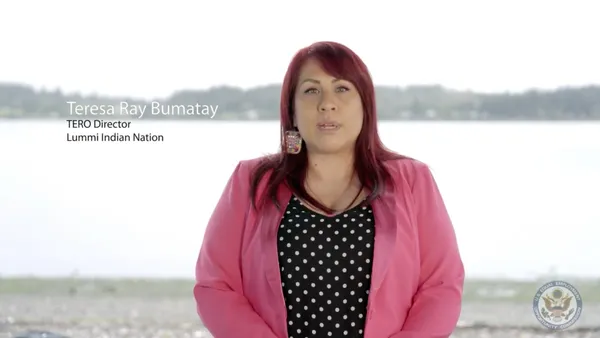If diversity, equity and inclusion (DE&I) is not a priority for your organization yet, hopefully it’s on your roadmap - because it matters to your employees. In the last year alone, the death of George Floyd, anti-Asian violence and a fight over voting rights have led to a renewed passion around issues related to social equality and your employees - both current and future - want you to be vigilant in creating an inclusive workforce. According to a CNN/SurveyMonkey survey, four out of five workers want to work for a company that prioritizes DE&I.
There are obvious ways for you to improve DE&I in your company, from ensuring you’re bringing in a diverse group of interviewees for each role you hire for to creating programs that are more inclusive for all of your employees.
But, while many companies are doing a better job of being culturally aware in developing a more balanced workforce, they often overlook the financial pressures that vulnerable populations face outside the workplace. For example, women have only had the right to open up their own credit cards for the last 50 years. It wouldn’t be until the three years later that the Equal Credit Opportunity Act was passed, forbidding lenders from discriminating based on “race, color, religion, national origin, sex, marital status, age, or whether you receive income from a public assistance program”.
This historical context only one or two generations removed from our current workforce means that some employees aren’t starting out on a level playing field, even if they’re making the same annual compensation as the person sitting next to them. An awareness of the financial stress these employees are facing can help direct your DEI&I and financial wellness efforts.
Who are “credit invisibles” - and why helping them bolsters your DE&I efforts
“Credit invisibles” are people who have limited or no credit history. These consumers - some of whom work for you - have trouble accessing credit through traditional means and are ripe for predatory lenders. The ramifications for credit invisibles is daunting: they may have to pay 300 percent APR for a payday loan or 34-155 percent for an online installment loan because a Main Street bank won’t approve them for credit. They’re more likely to overdraft their bank accounts in order to afford regular bills or unexpected expenses, at an average of $450 a year. And consider this: in a seller’s home market, where buyers need every penny they can spare, a homeowner with subprime credit can pay as much as 91 percent more for home insurance than someone with stronger credit.
It should come as no surprise that the segment of your workforce that most often qualify as “credit invisible” are your vulnerable populations. According to the Consumer Financial Protection Bureau (CFPB), nearly 15 percent of Blacks and Hispanics are credit invisible, compared to roughly 10 percent of Whites and Asians. Thirteen percent of Blacks and 12 percent of Hispanics have unscorable credit records compared to about 7 percent of Whites and close to 8 percent of Asians.
Our own data reflects the growing crisis facing vulnerable segments of the population. When you look at those groups, the current climate has also had a significant impact on them; for instance, nearly 60 percent of LatinX cited that COVID-19 negatively impacted their finances. In the LGBTQ population, that percentage increases to nearly 70 percent. Since COVID-19, nearly 40 percent of black workers say they are saving less. The people you’re striving to build an equal workforce for are struggling, oftentimes without access to affordable credit.
Data tells a story and, in this case, the impact of COVID-19 - in addition to the remnants of the inequality that has existed in the workforce for decades - has had a profound impact on your employees’ personal finances. By focusing on helping this segment of your employee base, you can greatly improve your DE&I efforts.
Providing affordable credit for all
Employers can make a big difference. One way is ensuring employees have access to responsible, affordable credit, regardless of their credit history.
Salary Finance provides a model to businesses that makes access to affordable credit possible for more employees, by leveraging employment-based data and underwriting loans based on more than just credit score. The Salary Finance program is designed to provide employees with low-interest loans, which can help them pay down existing, high-cost debt faster and at lower interest rates than traditional lenders. This can help prevent them from having to turn to high-cost alternatives like payday loans or high-interest credit cards in the event of unexpected expenses, like those created by COVID-19.
Salary Finance also reports to credit bureaus while a loan is being repaid, so that employees can improve on or establish their credit history as a result, and avoid having to take out high-cost debt in the future. On average, the credit score of a Salary Finance borrower has increased by more than 40 points by the time they’ve paid off their loan.
In addition to providing affordable loans to employees at partner companies, Salary Finance provides free referrals to local nonprofit and government resources in their area to help them with things like childcare, utility bills, and disaster relief.
Offering payroll-deducted financial wellness products as voluntary benefits for your workforce is a quick, easy way to begin alleviating their financial stress. It allows employees who may have historically been unable to access fair and equitable financial products to do so, through a trusted relationship with their employer. You’re also bolstering your DE&I initiatives - and pleasing your socially conscious workforce by building a more inclusive workplace.










